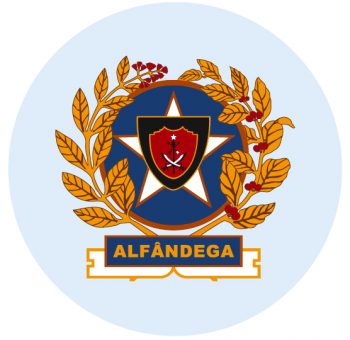About Us
The Customs Authority helps the Government of Timor-Leste to control the movement of goods, vehicles, ships and aircraft that enter and leave the country. As well as protecting our borders from the import or export of illegal or restricted goods, we also help to collect duties and taxes which is an important source of national revenue.
In 2017, the Customs Authority was established by the Decree Law 9/2017, succeeding the National Directorate of Customs, under the Ministry of Finance portfolio responsibility. With assistance from a number of international development partners, we are continuing to reform and modernize the way we work, in efforts to establish a more robust and transparent organization. This has included:
- Updating laws to enhance organizational efficiencies;
- Automating and streamlining procedures to improve our Customs-to-business relationship;
- Introducing new technologies to increase the efficiency and effectiveness of trade, which has reduced costs and increased our revenue collection; and
- Improved Customs official’s workplace through training, skills development, and the embodiment of core values into daily activities.
In January 2020, the New Organic Structure of the Customs Authority (Decree Law 2/2020), was promulgated, and in April 2020, the New Structure came into effect. This Law is intended to professionalize our workforce further and ensure our service is valuable to the trade industry. You can access and download a copy of this law here.
Our Mission
Our mission is to ensure:
- Secure the nation’s borders, and stop illegal or restricted goods from entering or exiting the country;
- Ensure that all appropriate duties and taxes are collected fairly and transparently;
- Prevent significant losses in revenue caused by inefficiencies or illegal activities;
- Make procedures more efficient and bring Customs into compliance with international standards;
- Facilitate trade, and attract investment by making it easier for businesses to import and export goods; and
- Identify and eradicate corruption from within Customs.
Organizational Structure
As per the New Organic Structure (Decree Law 2/2020), our new administrative
structure includes:
National Directorate of Operations:
- Directs all operational activities of the Customs Authority and ensures the activities related to the inspection, prevention, and repression of Customs and tax fraud through the deconcentrated services.
National Directorate of Risk Management:
- Identifies risk situations and ensure activities related to the investigation, prevention, and prosecution of Customs and tax fraud.
National Directorate of Customs Compliance Management:
- Ensures mechanisms related to the areas of taxation, Customs regulation,
and excise duties.
National Directorate of Administration, Finance, and Logistics:
- Responsible for activities related to managing resources, finance, and logistics.
Internal Audit and Ethics Unit:
- Prepares and manages inspections and audits. The unit also carries out monitoring and evaluation of the organizational structure, training employees, administration of human, material, and financial resources, compliance with internal regulations and instructions, and implementation of internal quality standards.
The Legal Unit:
- Provides legal support in the preparation of legal diplomas and legal advice.
The Appeal Unit:
- Coordinates and directs the preparation of opinions, complaints, appeals, or other
procedures of a similar nature.
Institutional Relations and Communications Unit:
- Promotes collaboration and communication with the Customs Authority, taxpayers, and national and international institutions. The unit also manages and develops effective stakeholder engagement and communication activities and promotes the Authority’s image.
Customs Informatics and Statistics Unit:
- Manages and develops computer systems and applications for supporting
statistical production.
Human Resources Management and Training Unit:
- Ensures the human resources process, such as researching and developing proposals on policy guidelines, organizational management, and training, including the recruitment system.
You can access and download a copy of the organizational structure here.
Our Values
The Customs Authority is founded upon the following four core values:

Integrity
Integrity is the Customs Authority’s foundation:
Integrity means all employees will treat people equally and apply the law fairly. Integrity requires that employees act with honesty and openness. In this way, the Customs Authority will promote good governance and trade facilitation.
Professionalism
Professionalism in all practices:
The Customs procedures are being simplified and standardized to international practice. The Timor-Leste Harmonized tariff classifications facilitate the faster movement of goods across international borders. New IT systems, through ASYCUDA World.
Transparency
Transparency in our activities:
The Customs Code ensures that the Customs Authority will publish rules, directives, or any changes to the Code and allow Customs to actively consult with the private and public sector on various issues. The Code also clarifies what information importers and exporters need.
Respect
Respect will form the basis for dealing with clients:
Respect means being sensitive and responsive to our clients’ rights and needs. Respect requires that employees always act with courtesy and efficiency. Respect for clients also means providing excellent customer service.
Our Five Year Strategic Plan
Over the next five years, we aim to reform our organization, improving our service and ensuring our values are reflected in all that we do. Our 2020-2025 Strategic Plan will guide us towards fully transforming into a more efficient and professional authority, in efforts to ensure we can meet our legal obligations and provide a quality service to our customers. You can access and download a copy of our 5-year Strategic Plan (2020-2025) here.